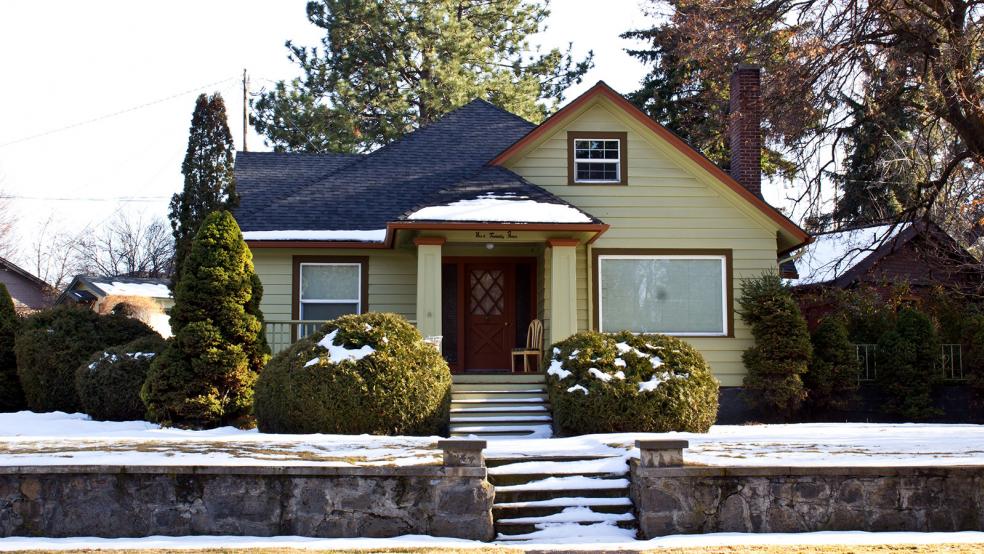If you can ignore the freezing temperatures, snow-covered walkways and gray skies, you might find that winter is a great time to buy a home—and score a deal.
That’s because many would-be buyers put their house hunt on hold until the ground thaws, and the homes still on the market are often owned by people motivated to sell as soon as possible. Home prices and interest rates also are likely to increase as the weather warms up.
“Inventory levels may dip a little, but so does buyer competition,” says Grattan Donahoe, broker and owner of ERA Donahoe Realty in Temecula, California. “So if you’re in a market that experiences frustrating multiple offer situations this can be your opportunity to actually negotiate a purchase.”
Related: 7 Fixes to Do Now to Sell Your House in the Spring
Real estate agents offer the following five tips for winter-buying to ensure you get the best price possible on your home.
1. Be assertive. Just because there are fewer buyers doesn’t necessarily mean there is no competition. The buyers left in the winter market are likely to be just as motivated in finding a house and a deal as you are. And because there are fewer homes on the sales block means a standout house will get a lot of buyer attention. That means you should stay competitive.
“I would approach the winter months no different than if you were looking in the spring or summer selling season,” says Donahoe. “Actively look at properties as often as possible until you find ‘the one.’” And then act.
2. Be over-prepared.
Before you fall in love with a home, have a pre-approval from your lender in hand. That will show any seller that you’re serious and ready to commit, and possibly persuade the seller to accept a lower price.
“Too often home buyers become invested in a home only do discover that they cannot perform,” says John Mangas, broker and co-owner of RE/MAX Preferred Associates in Toledo, Ohio. “Off-season sellers are leaving their property on the market because they really need to sell. The buyer can benefit from this.” But only if they are prepared.
Related: The States With the Hottest Housing Markets This Year
3. Insulate yourself from incomplete inspections.
Getting a good inspection can be difficult in the winter months, Mangas says. “Roofs can be covered in snow; air-conditioning units often can’t be tested and, let’s face it, no one can properly look at the pool,” he says.
To protect yourself from any nasty surprises, ask the seller for a home warranty, which costs between $300 and $500 and covers systems like heating and cooling, plumbing and electrical, and certain appliances. Or, have the seller include a closing affidavit indicating that certain items are in good working order.
4. Get a heating preview.
One system that you can inspect thoroughly during the winter is the heating. While touring potential homes, note if you feel any drafts, which could indicate faulty or old windows or doors that should be replaced—on the seller’s dime. If there any ice dams on the roof, that could signal an insulation issue in the attic, according to a survey of Better Homes and Gardens Real Estate brokers. Also, ask for copies of the utility bills to see how efficient the home’s heating is during frigid weather.
Related: 10 Real Estate Trends Coming Your Way in 2016
5. Wheel and deal.
“In the off season, sellers usually have to sell, creating more room to negotiate,” says Jim Zarkadas, a real estate agent with Century 21 Commonwealth in Natick, Massachusetts, “which usually leads to a great buy, especially if the property has been sitting on the market through the summer and fall.”
Don’t be shy about haggling. Sellers may be more likely to consider lower offers or throw in extra money for needed repairs. Don’t forget your lender, either. Banks, too, may reduce closing costs to win your business during this traditionally slow time of year.





